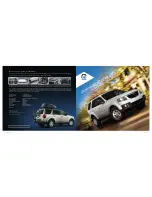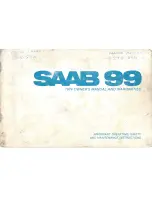
CONTINUED
The reading on your vehicle’s
temperature gauge should stay in
the midrange. If it climbs to the red
mark, you should determine the
reason (hot day, driving up a steep
hill, etc.).
If your vehicle overheats, you should
take immediate action. The only
indication may be the temperature
gauge reading reaching the red
mark. Or you may see steam or
spray coming from under the hood.
If you see steam and/or spray
coming from under the hood, turn
off the engine. Wait until you see
no more signs of steam or spray,
then open the hood.
If you do not see steam or spray,
leave the engine running and
watch the temperature gauge. If
the high heat is due to overloading,
the engine should start to cool
down almost immediately. If it
does, wait until the temperature
gauge reading comes down to the
midpoint, then continue driving.
Safely pull to the side of the road.
Put the transmission in Neutral or
Park, and set the parking brake.
Turn off all accessories, and turn
on the hazard warning lights.
If the temperature gauge stays at
the red mark, turn off the engine.
Look for any obvious coolant leaks,
such as a split radiator hose.
Everything is still extremely hot,
so use caution. If you find a leak, it
must be repaired before you
continue driving (see
on page
).
1.
2.
3.
4.
5.
183
If the Engine Overheats
Emergency
Towing
T
a
k
ing
Ca
re
of
th
e
U
ne
x
p
e
c
te
d
177
Steam and spray from an
overheated engine can
seriously scald you.
Do not open the hood if steam
is coming out.
Driving with the temperature gauge
reading at the red mark can cause
serious damage to your engine.
















































